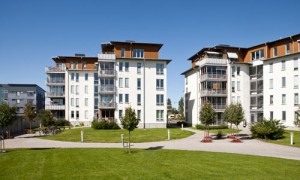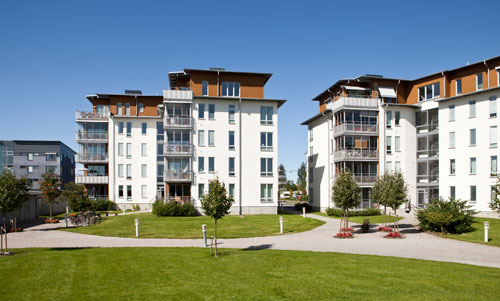2nd of the series
Track2Realty Exclusive
 A Knight Frank report suggests revenues of real estate companies have dropped by 19 per cent and profits have declined by 70 per cent, over the past four financial years, since 2007-08. The consultancy firm has conducted a financial analysis of 19 leading realty players across the country. These companies have shown a dip in profit mainly on account of high debt, which has increased by 1.5 times while interest outgo has increased by 2.3 times during the four-year period. Higher construction cost is also eating into their profits.
A Knight Frank report suggests revenues of real estate companies have dropped by 19 per cent and profits have declined by 70 per cent, over the past four financial years, since 2007-08. The consultancy firm has conducted a financial analysis of 19 leading realty players across the country. These companies have shown a dip in profit mainly on account of high debt, which has increased by 1.5 times while interest outgo has increased by 2.3 times during the four-year period. Higher construction cost is also eating into their profits.
The ground level forecast for 2012 says that prices could taper off in cities like Mumbai, Delhi, Kolkata, Hyderabad, Pune and Ahmedabad by as much as 10-15 per cent. The slowdown coupled with fund crunch for the real estate sector may force cash starved developers to sell projects to reduce debt. Many of them have borrowed at huge costs upward of 18 per cent. This process of correction, however, will not be as intense as the one witnessed in 2008-09. Nevertheless the overheated market all through the year 2011 is expected to be cooling off as many developers across the cities, who resisted discounts even during peak of Navratra and Diwali, would not like to add to their inventories after fresh supply.
Facts speak for themselves. The cost of new residential properties in many parts of the country continued to rise even as the market transactions indicated the alarming signs. In New Delhi and Mumbai, for example, prices were up 13 per cent from a year earlier, while sales were down by 30 per cent and 24 per cent, respectively, data from real-estate research firm Liases Foras show. Credit Suisse says prices nationwide would have to drop by between 15 per cent and 20 per cent to clear the buildup in inventories.
The sector is expected to register a 5-10 per cent drop in net profit when compared with, both, the year-ago period and the preceding quarter. Analysts believe the prevailing stubbornly high property prices, especially in Mumbai and parts of Delhi, and the high mortgage rates seem to indicate a price correction in assets is imminent. The widening “bid-ask” gap (buyers’ and sellers’ price) is also a pointer to the forthcoming dip in asset prices.
Commercial property demand, meanwhile, also faces the prospect of a sharp demand drop, given the possibility of a global double-dip recession. That is because the information technology sector accounts for 50 percent of the demand for office space in India. Currently, the outlook for tech companies, which export software primarily to the US and Europe—the two markets threatened by recession—is gloomy and uncertain, which is likely to impact commercial property demand.
Though developers may be in a state of denial, investors in their shares are not. That is reflected by the Bombay Stock Exchange Realty index, which has plunged 53 per cent (till October 2011) in the past one year, compared with a 17 per cent drop in the Sensex. Foreign investors who were keen on the long-term India property story in the past are also pulling back. The portion of India’s FDI into real estate has fallen to just over 2 per cent in 2011, down from an aggregate 7 per cent since 2000.





